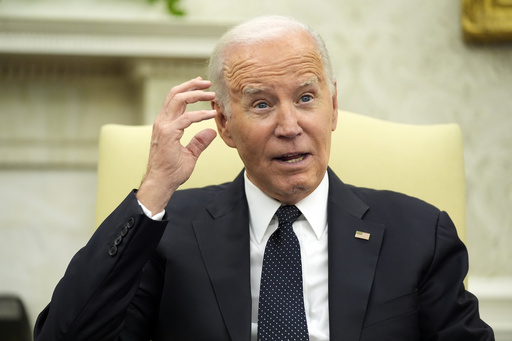WASHINGTON (AP) — President Joe Biden hosted Klaus Iohannis, the president of Romania, on Tuesday at the White House, with the two leaders celebrating their joint cooperation on issues including international security, the economy and continued support for Ukraine.
The meeting in the Oval Office was meant to mark Romania’s two decades as a NATO member, according to the White House.
At the start of the meeting, Biden joked he advocated for NATO accession for Romania when he was a senator “180 years ago” and said the alliance was stronger for the country’s inclusion. Biden noted that Romanian and American troops have fought and trained alongside one another and praised Romania for having “stepped up” to assist Ukraine in fending Russia’s invasion.
“The United States is committed to standing with you,” Biden told Iohannis.
In turn, Iohannis thanked Biden for hosting him and called the transatlantic alliance “a cornerstone of our democratic way of life.” He said he intended to make progress toward a visa waiver for Romanian travelers to the U.S. but that the most important topic was “to find a way to reinstall peace” in Europe and to ensure that Russian President Vladimir Putin doesn’t win.
Iohannis announced in March that he will run to be NATO’s next secretary-general, although Biden and many other leaders in the alliances have thrown their support behind Mark Rutte, the Netherlands prime minister. White House press secretary Karine Jean-Pierre declined to say Tuesday whether that issue arose during the two leaders’ meeting, deferring to a readout that was expected later.
Earlier Tuesday, White House national security spokesman John Kirby sidestepped questions about whether Biden would ask Iohannis to clear the way for Rutte. Selection of the next NATO secretary-general requires consensus.
“Nothing’s changed about our support for Mr. Rutte to be the next secretary-general,” Kirby said.



